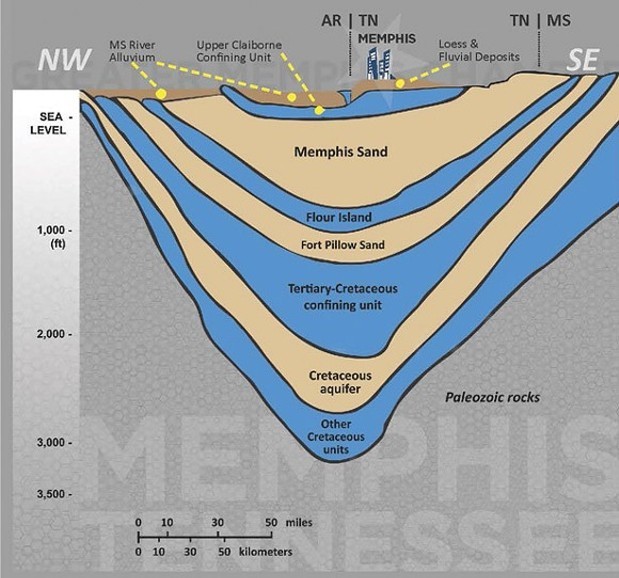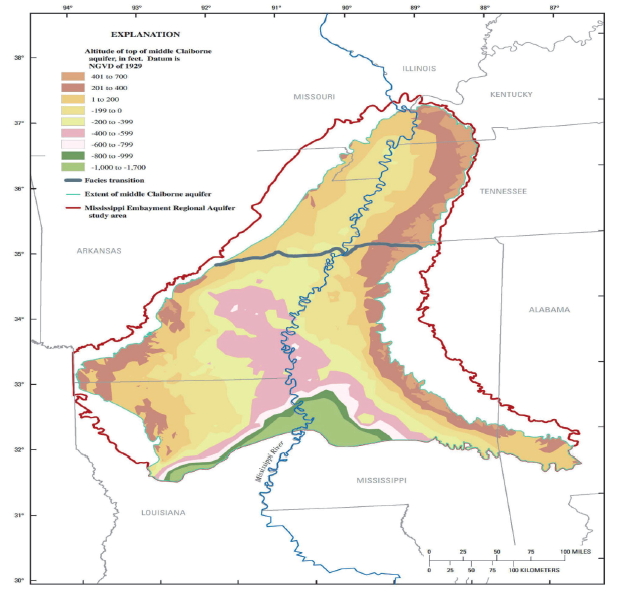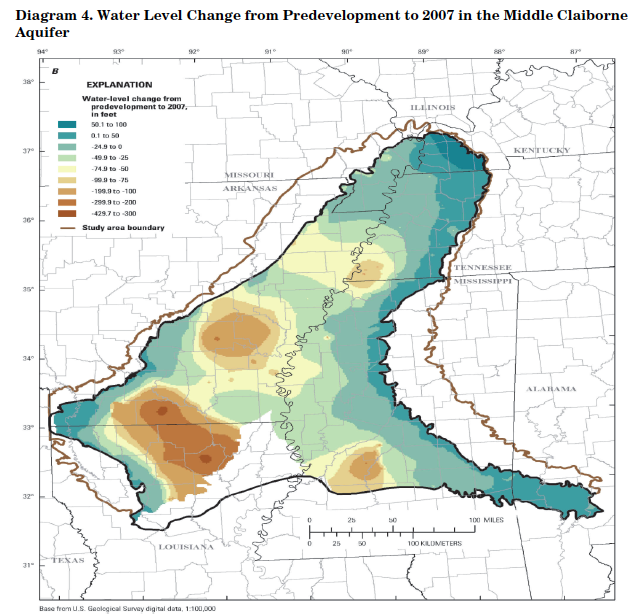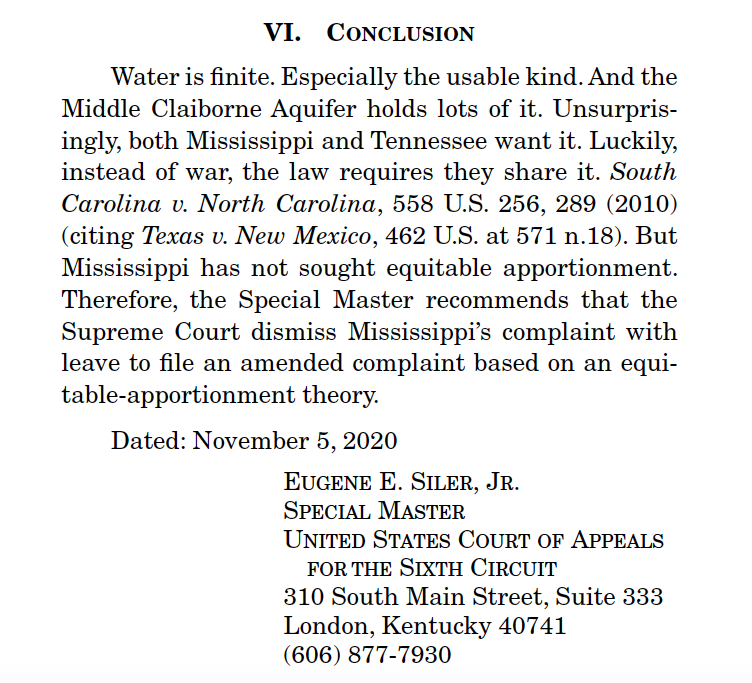 Corey Owens/Greater Memphis Chamber
Corey Owens/Greater Memphis Chamber
A diagram shows the layer of aquifers underneath Memphis.
Tennessee has not been stealing billions of gallons of Mississippi’s waters for years, according to an opinion issued Thursday in a legal battle over water rights here that began in 2006.
The original suit claimed wells drilled in Memphis siphoned off water that belonged, exclusively, to Mississippi. Mississippi officials wanted the U.S. Supreme Court to recognize the state’s right to the water and wanted Tennessee to pay $615 million for the water Tennessee had already consumed.
But a federal judge working on the case opined against Mississippi’s claim Thursday. Judge Eugene Siler, appointed as Special Master on the water suit, recommended that the suit be dismissed and for the states to share the water.
The core of Siler’s ruling was that the disputed waters flow between many states. Thus, they become an “interstate resource,” meaning rights to the water are held by many states. Mississippi officials claimed the water is stored under their state boundaries and belongs only to them, making the water an “intrastate resource.” 
“Mississippi’s claims are simple: Tennessee has, by pumping in Shelby County, Tennessee, taken groundwater that would have remained in Mississippi for centuries,” reads Siler’s ruling. “Over more than a decade of litigation, at every level in the federal court system, the core of Mississippi’s claims has not wavered. Mississippi thinks Tennessee has stolen and continues to steal its water. Easy enough.”
But Siler says surface boundaries and rights are easier when compared to the the “various rock formation and complex hydrology” found underground.
“And Mississippi claims those subsurface differences require distinguishing its water from the water that sits below other states,” Siler said. “Tennessee, on the other hand, thinks any of those geological differences are much ado about nothing. The Special Master agrees with Tennessee.”
Officials in Mississippi claim waters in the Sparta Sand Aquifer are stored only under the Magnolia State, making it an intrastate resource, only available for one state. Mississippi argued that “it owns a fixed portion of the aquifer because it controls the resources within its state boundaries.”
Officials in Tennessee claimed the Sparta and the Memphis Sand Aquifer were connected, making waters there an interstate resource, available for many states.
Siler said both aquifers are part of a much larger aquifer — the Middle Claiborne Aquifer. This massive aquifer lies beneath Alabama, Arkansas, Illinois, Kentucky, Louisiana, Missouri, Mississippi, and Tennessee.
 U.S. Supreme Court
U.S. Supreme Court
The Memphis Sand comprises much of this aquifer’s northern portion. The Sparta Sand takes up much of the southern portion, according to the suit.
But Mississippi’s suit seeks to separate the two. With that, officials there believe Memphis — specifically Memphis Light, Gas & Water (MLGW) — has “’forcibly siphoned’ off its water to the tune of billions of gallons. And that without modern pumping technology, none of that water would be available to Tennessee.”
[pullquote-1-center] The water and the water pressure in the Sparta Sand are both down because of MLGW’s pumping, according to the suit. Tennessee’s “heist” of groundwater is so fast and so great, Mississippi now has to drill deeper wells. That has increased the cost on Mississippians who rely on the aquifer for their groundwater.
Siler said Mississippi’s claim of a water drawdown proves that the aquifers are connected and, thus, should be a resource shared by the states. Mississippi officials claim, though, that Tennessee can only get the water if they pump it out.
Siler recommends Mississippi and Tennessee simply share the water. However, Mississippi “specifically rejects the application of equitable apportionment to this case.”
 U.S. Supreme Court
U.S. Supreme Court
“While Mississippi acknowledges that the aquifer extends underneath both states, it alleges that the groundwater is stored only underneath Mississippi,” reads the ruling. “In fact, its position is Tennessee can only access the water underneath Mississippi by pumping it out. As a result, Mississippi believes that the groundwater ‘is neither interstate water nor a naturally shared resource.’ Therefore, it claims that Tennessee has no right to the water. Thus, equitable apportionment cannot apply.”
But Siler sided with Tennessee in the case and will recommend to the U.S. Supreme Court that the state should share the water.
“Water is finite,” Siler wrote. “Especially the usable kind. And the Middle Claiborne Aquifer holds lots of it. Unsurprisingly, both Mississippi and Tennessee want it. Luckily, instead of war, the law requires they share it.”
 U.S. Supreme Court
U.S. Supreme Court
Read the Special Master’s report here:
[pdf-1]